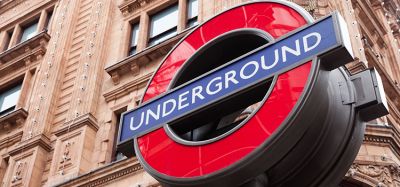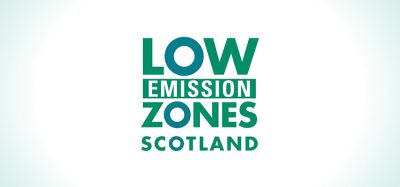Department for Transport outlines plans for the eventuality of a ‘no deal’ Brexit
- Like
- Digg
- Del
- Tumblr
- VKontakte
- Buffer
- Love This
- Odnoklassniki
- Meneame
- Blogger
- Amazon
- Yahoo Mail
- Gmail
- AOL
- Newsvine
- HackerNews
- Evernote
- MySpace
- Mail.ru
- Viadeo
- Line
- Comments
- Yummly
- SMS
- Viber
- Telegram
- Subscribe
- Skype
- Facebook Messenger
- Kakao
- LiveJournal
- Yammer
- Edgar
- Fintel
- Mix
- Instapaper
- Copy Link
Posted: 15 October 2018 | Luke Antoniou - Intelligent Transport | 1 comment
The recently-published transport technical notices set out plans to be put into place in the situation the UK leaves the EU without a deal.


The UK government has published a series of technical notices which set out plans to be put into place in the unlikely situation the UK leaves the EU without a deal.
The 13 documents by the Department for Transport demonstrate the potential impact a no deal scenario will have on areas of transport policy, including the haulage industry and those driving in and flying to and from Europe.
While the government remains confident of a maintaining a partnership with the EU following the UK’s exit, the DfT is making the sensible step of putting in place contingency measures to ensure holidaymakers and businesses can continue to travel and export after Brexit.
The salient points
- UK driving licenses may no longer be valid by itself when driving in the EU. Drivers may need to obtain an International Driving Permit (IDP) to drive in the EU – these vary depending on which country is being driven in
- If the UK leaves the EU in March 2019 with no deal in place, UK motorists would need to carry a Green Card as proof of third party motor insurance cover when driving in the EU, EEA, Andorra, Serbia and Switzerland
- UK hauliers could no longer rely on automatic recognition by the EU of UK-issued Community Licences. Hauliers may therefore no longer be able to access EU markets with their Community Licence alone
- Emissions of CO2 from new passenger cars and light commercial vehicles registered in Europe each year (registrations) are currently governed by Regulation (EC) 443/2009 and Regulation (EU) 510/2011 – these regulations would be brought into UK legislation
-
In a no deal scenario, type-approvals issued in the UK would no longer be valid for sales or registrations on the EU market and EC type-approvals issued outside of the UK would no longer be automatically accepted on the UK market, meaning affected manufacturers would need to ensure that they have the correct type-approval for each market
- UK bus and coach operators could no longer rely on automatic recognition by the EU, although some EU countries may choose to recognise that UK-issued operator licences and associated authorisations are based on the same standards and not require further authorisations, this cannot be guaranteed
- Regarding rail travel, the UK would still be able to pursue bilateral agreements with EU countries to maintain cross-border services and are seeking mutual recognition of all necessary documentation so that operators from the UK and the EU can continue to operate cross-border services without disruption after exit.
UK citizens planning a trip to Europe in the short term do not need to take immediate action. The government will set out clearly and in good time what additional steps may be required. For business, a more proactive approach will be necessary to ensure new procedures are in place for March 2019 and details are given in the notices.
These notices are in addition to the ongoing active engagement the government continues to have with stakeholders across transport to discuss impacts and opportunities from EU Exit.
Throughout the whole of the Brexit process, the government says its aim has been to ensure that all travel – whether business or personal – remains as friction-free as possible after the UK leaves the EU. The government says that its intention is to recognise EU standards of security and safety and expect its European partners to do the same, and believes it is in the mutual interests of both parties to do so.
A recent survey by KPMG UK shows that the British public are concerned that UK transport networks could be placed under strain in the event of a no deal outcome from Brexit negotiations.
The poll, of 3,044 members of the British public, found that if the UK does not strike a deal with the European Union, 62.9 per cent believe that they will face severe travel delays across the transport network, particularly at ports. Half of the respondents (50.3 per cent) believe that flight delays and cancellations are likely to occur and that travel between the UK and EU will become difficult (52.9 per cent).
Ed Thomas, UK Head of Transport at KPMG said: “These numbers paint a picture of the level of uncertainty amongst the British public with regards to Brexit. If there is a no deal outcome then the UK government needs to start planning and reassuring the British public that the transport system in the UK will operate as usual. The government also needs to analyse the impacts on business of any backlog of containers and lorries at UK ports and ensure that appropriate contingency planning is in place.”
Related topics
Transport Governance & Policy
Related cities
Europe, European Union, United Kingdom
Related organisations
Department for Transport (DfT), KPMG
Related people
Ed Thomas








What makes anyone think there will be a deal? Chequers is unacceptable to the EU and the UK Parliament. There is no other deal on the table. These ‘plans’ are weak but at least a belated response to the dawning realisation that there will be no deal. There is no time for a second referendum to prevent this folly therefore unless Article 50 provisions can be extended, we will crash out with no deal. The consequences will be extremely severe.